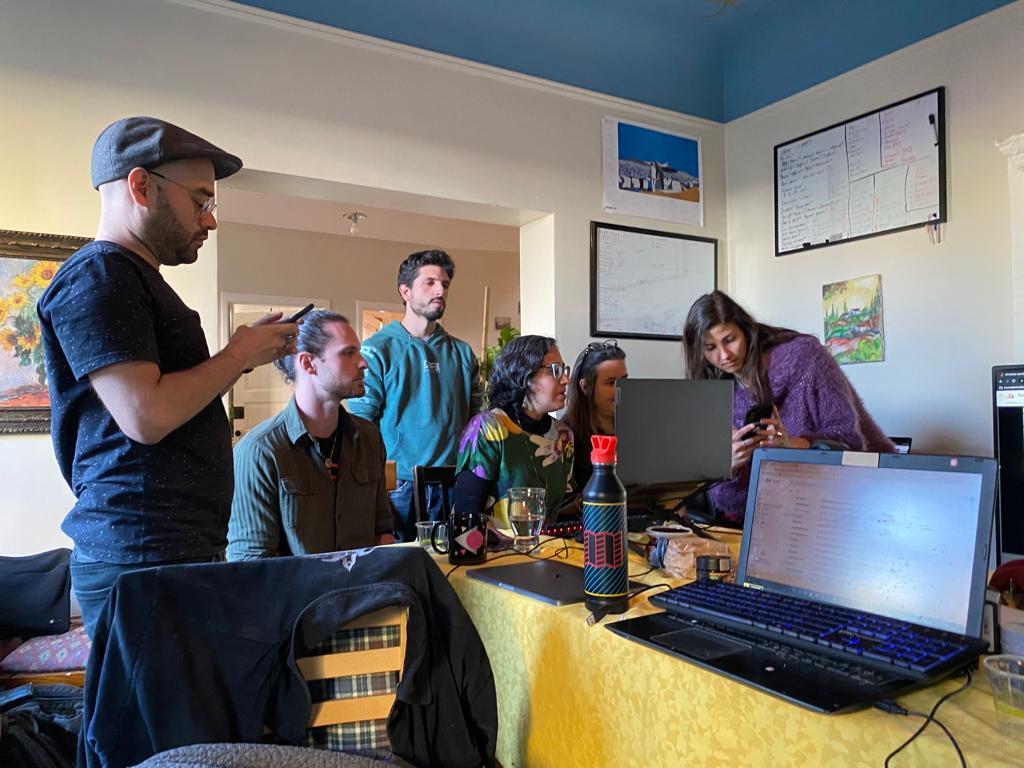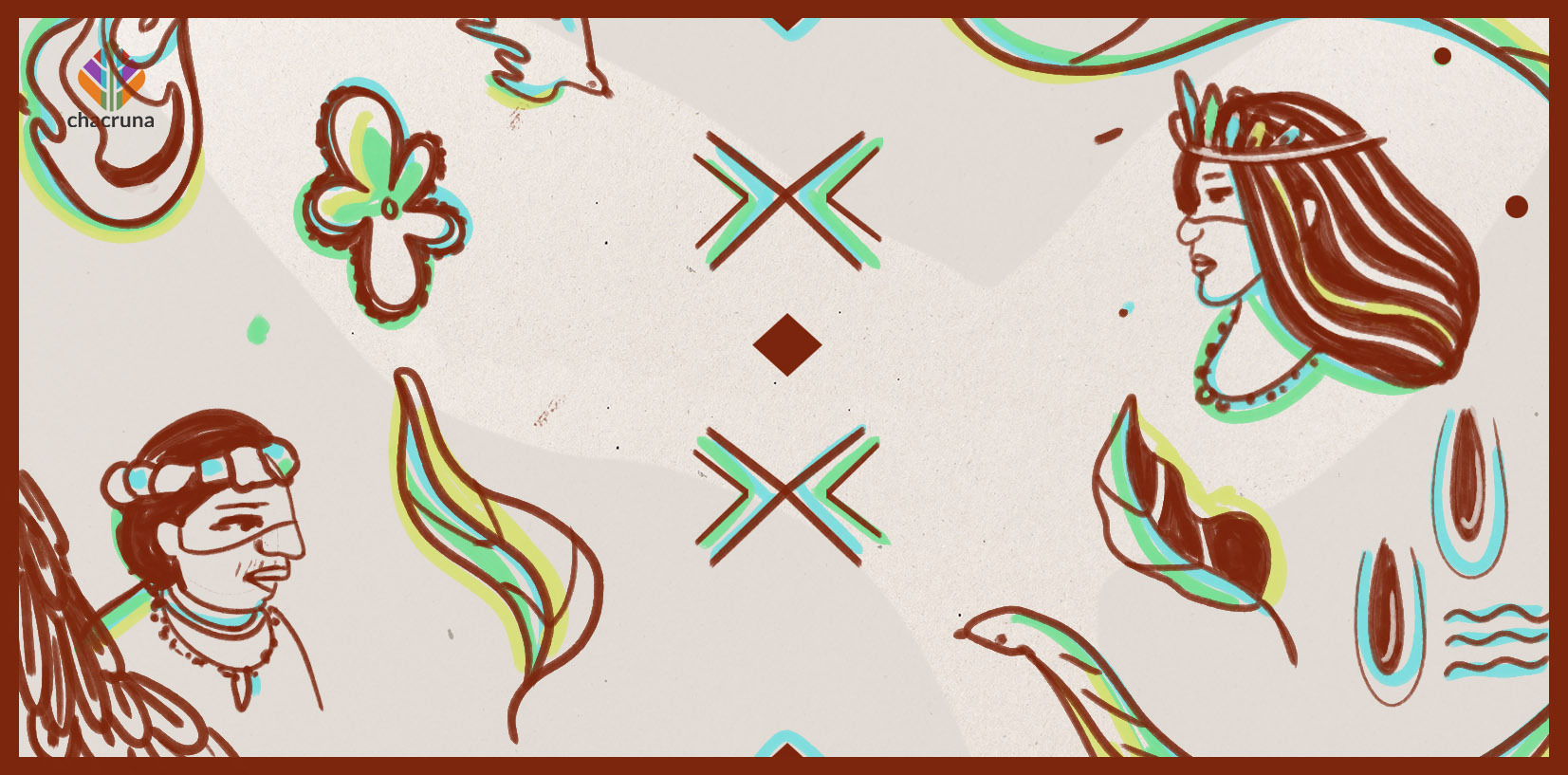First of all, I would like to thank Dr. Bia Labate for the invitation to participate in the closing of this forum. The event was full of very thought-provoking discussions about the relationship between religion and psychedelics; a relationship that, as seen here, is already established, but still needs to be better known and debated. Congratulations, Bia Labate and to all the Chacruna team for organizing this incredible event and, above all, for the great choice of its theme.
I was called to speak here because of my work monitoring the attacks on the rights and lives of Indigenous peoples in Brazil. I would like to begin by noting that, in this forum, a lot was said about sacred plants and shamanism. It is worth remembering that the shamanic knowledge and the rituals in which the sacred plants are used comes from the Indigenous peoples. In other words, if these peoples didn’t exist, a good part of what has been discussed here, in these three days, would not exist either.
I say this to stress the importance and centrality of the knowledge and practices of Amerindian peoples, and mainly to point out that, at this very moment, the existence of these peoples is threatened. I am going to speak about the context that I know—Brazil—but part of what I am going to say about this country applies to other contexts around the world.
Brazil has a Federal Constitution, promulgated in 1988, which guarantees Indigenous peoples the right to live on their lands according to their uses, customs, and traditions, and which obliges the federal government to demarcate Indigenous lands, guaranteeing that they will not be invaded and that their original owners will enjoy everything the land can give them. For some years now, this constitutional right has been continuously disrespected. But since the coup d’état that removed President Dilma Rousseff in 2016, and interrupted the cycle of re-democratization in Brazil after 21 years of military dictatorship, this right has been, to be more specific, violated.
The Brazilian State, more precisely the current ruler, Jair Bolsonaro, and his allies in the national Congress, have been acting directly against the Indigenous peoples by creating laws that relativize the right to Indigenous land and by scrapping the assistance services for Indigenous peoples; in particular, those that are designed to protect Indigenous lands and guarantee health care for the inhabitants of those lands.

Join Chacruna’s Studies in Psychedelic Justice
The reality today is that it seems that there is no longer any law in the country, and for the Indigenous peoples, this reality comes close to genocide. The attacks are multiple and are being carried out through the action and inaction of the Brazilian State in relation to the Indigenous peoples. The Brazilian State, more precisely the current ruler, Jair Bolsonaro, and his allies in the national Congress, have been acting directly against the Indigenous peoples by creating laws that relativize the right to Indigenous land and by scrapping the assistance services for Indigenous peoples; in particular, those that are designed to protect Indigenous lands and guarantee health care for the inhabitants of those lands.
These peoples need a strong network of protection, so that they are not exterminated by killers who covet the timber and mineral resources that are on their lands.
The most serious situation is that experienced by Indigenous peoples who have little or no contact with non-Indigenous society. These peoples need a strong network of protection, so that they are not exterminated by killers who covet the timber and mineral resources that are on their lands. The invaders and usurpers of Indigenous lands, those who directly threaten their existence and who have been supported by the Brazilian government in their actions include: land grabbers, deforesters, gold miners, large mining companies, large projects such as hydroelectric dams, transmission lines, roads, and all kinds of actions that usually impose themselves violently on Indigenous peoples, quilombola communities, and other so-called “traditional communities.”

The war against these populations has been waged in the name of an economic development model based on the unsustainable use of biomes. This model of development exploits the planet as if it could always recompose itself and offer its treasures infinitely. In the Covid-19 pandemic, the Brazilian government’s absence and lack of interest in protecting and caring for the Indigenous peoples and quilombolas has made explicit the government’s total disdain for these populations, who are seen as obstacles to development. That is to say, those who attack the Indigenous peoples and the biomes in which they live follow a capitalist mentality of relationship with the world; or, as anthropologist Mauro Almeida defines it, a mentality that is part of an ontology: the money ontology.
Those here who practice religions where ayahuasca is a fundamental component will understand the meaning of this deep connection between humans and non-humans and will understand the risk that the money ontology poses for the existence of these different worlds that are presented to us by Indigenous peoples.
This ontology is not interested in and purposely ignores the needs and desires of other ways of living the world, ways of living of those for whom the relationship with what is called “nature” has a meaning that does not fit the separation between humans, and the rest, animals, plants, spiritual beings, etc., which, for the money ontology, exist only to serve humans. Those here who practice religions where ayahuasca is a fundamental component will understand the meaning of this deep connection between humans and non-humans and will understand the risk that the money ontology poses for the existence of these different worlds that are presented to us by Indigenous peoples.
a mixture of disdain and hate for other ways of living than the capitalist way.
What we see today in Brazil—but not only there, in all the places where a developmentalist economic project imposes itself on the full life of the people—is a clash of worlds. This confrontation has been going on for a long time and has always been unequal, with one of the sides acting with extreme violence because it holds political and economic power. But if it has always been unequal, its most recent deployment reveals, in an obscenely explicit way, a mixture of disdain and hate for other ways of living than the capitalist way. Only this can explain the deadly attacks that Brazil’s current ruler and those who support him are directing at Indigenous peoples and traditional populations.
The current reality for many of these populations is composed of: epidemics; invasions and illegal appropriation of their lands; deforestation, exploitation, and degradation of the natural resources of these lands; weakening of rights; deficient or non-existent public policies; and religious conversion processes that violently vilify ritual practices and shamanism, accusing them of being practices linked to the Devil.
Discover the Indigenous Reciprocity Initiative of the Americas
This is the sad and cruel picture that is faced daily by many of the Indigenous peoples in Brazil. They are warrior people, and they have been fighting for more than 500 years with all their strength to maintain their practices and their knowledge; among them, those that many of you know: the ayahuasca, the shamanism, the sacred and medicinal plants. But these warrior peoples need support, because their enemies are very powerful. Everyone here can and should help, allying themselves with them in the defense of land rights, supporting the demands of Indigenous leaders and Indigenous associations; I mention here two of the largest and most active of them: the Articulation of Indigenous Peoples of Brazil (APIB) and Coordination of Indigenous Organizations of the Brazilian Amazon (COIAB).

In sum, to keep talking about psychedelics coming from the ancestral knowledge of the Indigenous peoples and their relationship with the Amazon rainforest, it is necessary to help these peoples in their struggle to maintain their existence. Remembering that the attacks on the Indigenous peoples are, as I said, motivated by the money ontology that aims to exploit the Amazon rainforest without pity until nothing is left of it.
With these words I conclude.
Thanks/Obrigada.

Watch recordings here
Art by Karina Alvarez.
—
Note:
This paper was presented at Chacruna Institute’s Religion and Psychedelics Forum, San Francisco, April 21–24, 2022.
This research was supported by the São Paulo Research Foundation (FAPESP), grant n. 2019/18255-1. The opinions, hypotheses and conclusions or recommendations expressed in this material are those of the author and do not necessarily reflect the views of FAPESP.
Take a minute to browse our stock:
Did you enjoy reading this article?
Please support Chacruna's work by donating to us. We are an independent organization and we offer free education and advocacy for psychedelic plant medicines. We are a team of dedicated volunteers!
Can you help Chacruna advance cultural understanding around these substances?

















